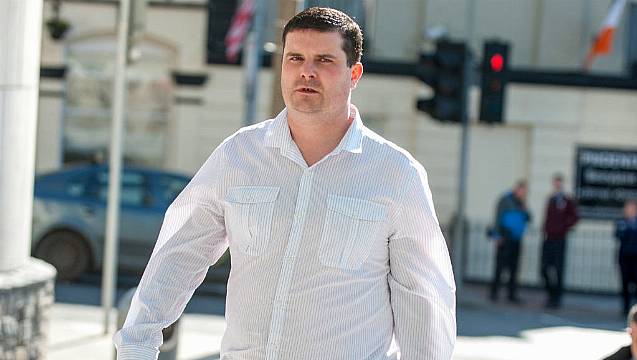The High Court has reserved its decision in Alan Harte's challenge aimed at setting aside both the conviction and the 30-year prison sentence he received from the Special Criminal Court for his role in the kidnapping and attack on businessman Kevin Lunney.
In his action, Harte has challenged the constitutionality of Section 40 of the 1939 Offences Against the State Act which directs that a person who comes before the three-judge court cannot be told if they have been convicted by a majority decision or a unanimous decision.
The 1939 Act provides for the establishment of the non-jury Special Criminal Court (SCC).
His action is against Special Criminal Court, the Director of Public Prosecutions, Ireland and the Attorney General.
The application is opposed by the respondents, which argue that the legislation challenged is constitutional.
The action opened before Ms Justice Marguerite Bolger on Thursday.
Following the conclusion of submissions from the parties, the judge reserved her decision, and said she would deliver her judgement at a later date.
Represented by Michael O Higgins SC, Harte seeks various including an order setting aside the conviction and sentence imposed on him by the SCC.
He also seeks declarations including that the Section 40 of the 1939 Act breaches the Irish Constitution because it does not allow an accused person to be informed if they have been convicted by a majority or unanimous decision of the SCC.
He further seeks a declaration from the court that his trial before the SCC was unfair, not in accordance with the law and in breach of his constitutional rights.
Case opened
Opening the case, Mr O'Higgins told the court that the issues raise here were novel and that there was no case law on the specific points being raised.
Counsel said it is their client's case he was tried for offences before the SCC, that would normally go before a jury at the Circuit Criminal Court.
He said that the standard of proof required to either convict or acquit his client should be mirrored.
Counsel said that a majority decision of a three-judge SCC should not be considered to have the same weight as even a majority decision of a jury.
This scenario was not equitable, counsel submitted, especially if you have a scenario where a group of persons accused of similar offences arising out of the same event are tried before courts with a jury or before a non-jury court such as the SCC.
Counsel also accepted that any remedy or alterations of the allegedly unconstitutional sections would be a matter for the Oireactas.
In reply, Remy Farrell SC for the respondents said that the section which is the subject of the challenge is constitutional and the challenge should be dismissed, and the conviction and sentence imposed should remain undisturbed.
In 2021 Harte (42) was sentenced to 30 years in prison by the SCC for committing serious harm on and falsely imprisoning the Quinn Industrial Holdings (QIH) director at a yard in Drumbrade, Ballinagh, Co Cavan in September 2019.
Due to Section 40 of the 1939 Act Harte claims he does not know if all three judges of the SCC found him guilty, or if he was convicted on a majority decision.

This, it is claimed, is in contrast to a jury trial, where since 1984 at least ten jurors must decide if an accused is guilty or not guilty of an offence they have been tried for.
A simple 2-1 majority decision of the SCC, it is submitted, is a major divergence from what is required from a jury hearing a criminal trial.
Section 40, Harte's lawyers claim annuls the constitutional guarantees of equality, and amounts to a form of unacceptable discrimination.
The fact that Section 40 of the Act prevents the announcement whether the SCC's verdict is unanimous, or a majority decision breaches the constitutional requirement that justice be administered in public, it is also claimed.







